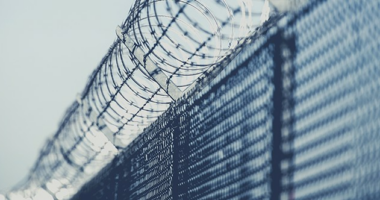Prisoners were producing furniture for IKEA, a global giant in the home furnishings industry, as recently as the 1970s and 1980s, the investigation conducted by auditors Ernst & Young found. IKEA representatives at the time were likely aware that political prisoners were being used to supplement labour, the report found.

In a statement this week, IKEA Germany announced it would voluntarily put €6 million ($9.9 million) towards the new government fund established to provide compensation to victims of the East German dictatorship.
After decades of campaigning by victim groups, Germany’s ruling coalition government proposed in 2021 to set up the hardship fund. The German parliament will vote on its establishment in the coming weeks, although this step is seen as a mere formality.
The IKEA statement adds that the payment is the result of years-long conversations between the company’s German branch and the Union of Victims’ Associations of Communist Dictatorship (UOGK) — an organization that describes itself as working to ensure those wrongly convicted in communist Germany receive justice in today’s constitutional state.
In a statement provided to CNN, Walter Kadner, CEO and Chief Sustainability Officer at IKEA Germany, said: “We deeply regret that products for IKEA were also produced by political prisoners in the GDR.
“Since it became known, IKEA has consistently worked to clarify the situation,” He said.

Old supermarket catalogue surprises shoppers
“We have given our word to those affected that we will participate in providing support. We therefore welcome the implementation of the hardship fund and are pleased to be able to keep our promise.”
IKEA’s landmark payment is the first of its kind. The move has been welcomed by organisations that advocate for victims.
Dieter Dombrowski, the chairman of UOGK, described the development as “groundbreaking”.
“After it became known that the company was involved in forced prison labor, IKEA accepted our invitation to talk,” he said.
“Together we have taken the path of enlightenment and IKEA has met those affected on an equal footing.”
“We hope that other companies will follow IKEA’s example,” Dombrowski added.
According to UOGK, IKEA is one of many companies that benefitted from forced prison labor in communist Germany. Former UOKG chairman Rainer Wagner warned in 2012 that IKEA is “just the tip of the iceberg” as he called for companies to compensate former prisoners who still bear the psychological scars of incarceration and forced labour.
Evelyn Zupke, special representative for GDR victims in the German parliament, said: “IKEA’s pledge to support the hardship fund is an expression of a responsible approach to dealing with dark chapters in the company’s own history.”
“We can’t undo what prisoners had to suffer in the GDR’s prisons, but we can treat them with respect today and support them,” she said.




![Brooklyn Beckham and Nicola Peltz have renewed their wedding vows, three years after tying the knot [pictured in 2022]](https://celebjam.com/wp-content/uploads/2025/08/Brooklyn-Beckham-and-Nicola-Peltz-renew-their-wedding-vows-three-380x200.jpg)


